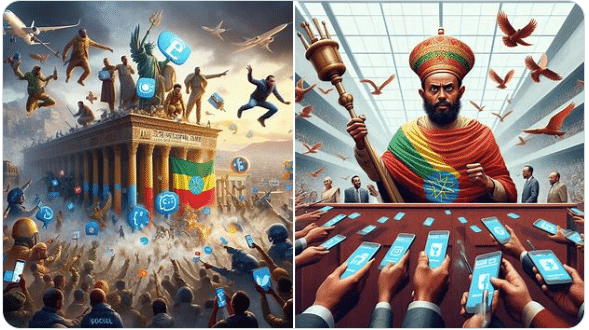
In the realm of social media, the Ethiopian government’s online presence presents a perplexing situation. While certain accounts are verified with official marks, others remain unmarked, leaving users uncertain about their authenticity and credibility.
To delve into this digital puzzle, let’s examine the case of government officials’ Twitter accounts. The Office of the Prime Minister – Ethiopia (@PMEthiopia) and Sahle-Work Zewde, President of the Federal Democratic Republic of Ethiopia (@SahleWorkZewde), proudly display a gray checkmark, indicating their official government status. Meanwhile, Foreign Minister Taye Atske Selassie’s Twitter account (@TayeAtske) boasts a blue tick mark, signifying its verification. However, the Office of the President, Ethiopia Twitter account (@POEthiopia), lacks any tick mark, setting it apart from its counterparts.
Twitter’s verification system assigns blue tick marks to accounts that meet specific eligibility criteria, ensuring that users engage with genuine and authoritative sources. Gray tick marks, on the other hand, are reserved for government and multilateral organizations, confirming their official status.
However, beyond these symbols lies a more profound issue: the absence of clear rules, policies, and standards governing the social media conduct of Ethiopian government officials. While verification marks provide a semblance of credibility, they do not guarantee adherence to ethical guidelines or accountability.
In Prime Minister Abiy’s Ethiopia, the lack of a regulatory framework exposes government social media accounts to inconsistency, misinformation, and potential misuse. For example:
